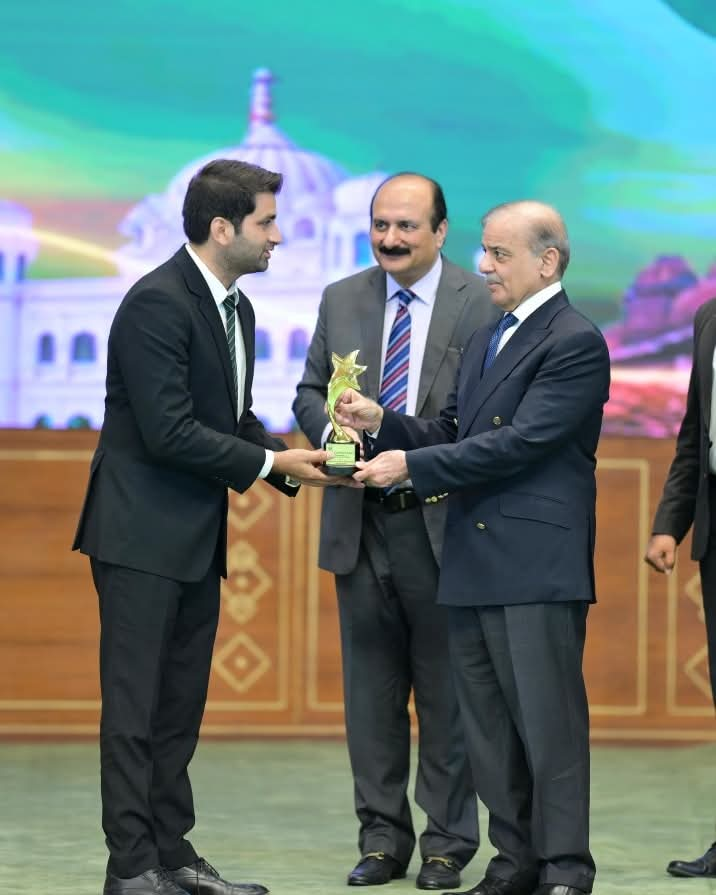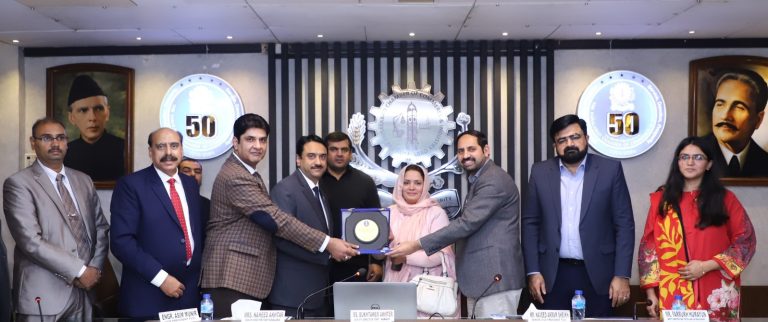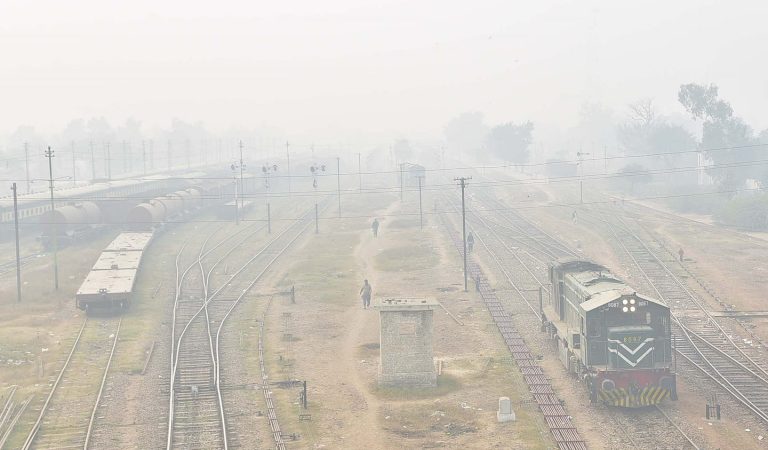WASA Faisalabad Signs Landmark Agreement for 33 MGD Wastewater Treatment Plant
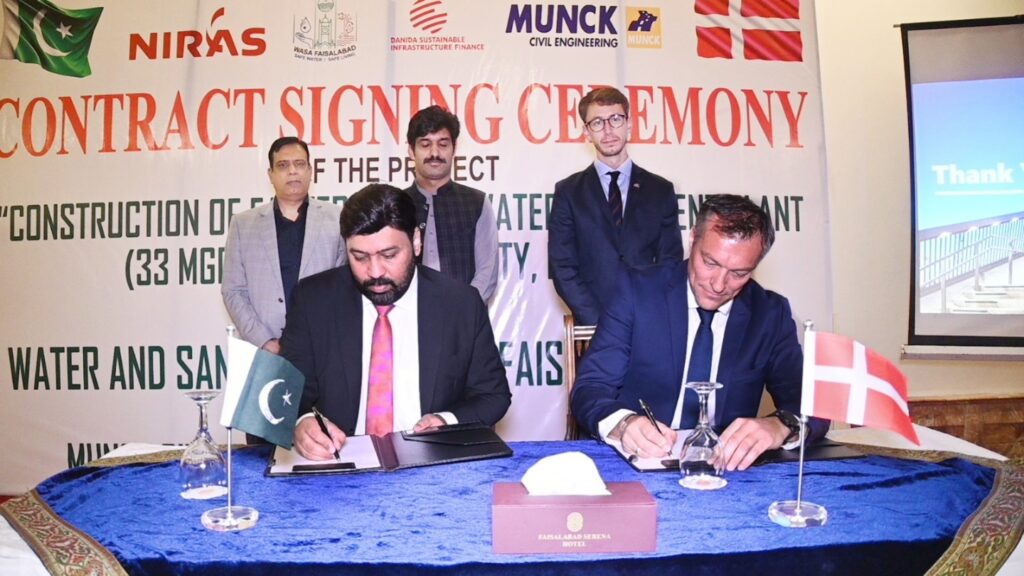
FAISALABAD: In a major step towards tackling water pollution and climate-related challenges, the Water and Sanitation Agency (WASA) Faisalabad has signed a construction agreement with Danish contractor company Munk for the establishment of a 33 million gallons per day (MGD) Wastewater Treatment Plant. The agreement was signed by Project Director Kamran Raza and Munk’s Project Director Mr. Rasmus Schmidt Peterson.
The signing ceremony, chaired by WASA Managing Director Sohail Qadir Cheema, was attended by Chief Guest Mr. Peter Emil Nielsen, Head of the Danish Embassy in Pakistan, and Guest of Honour Yasir Mubeen, Senior Chief of Urban Development at the Punjab P&D Board.
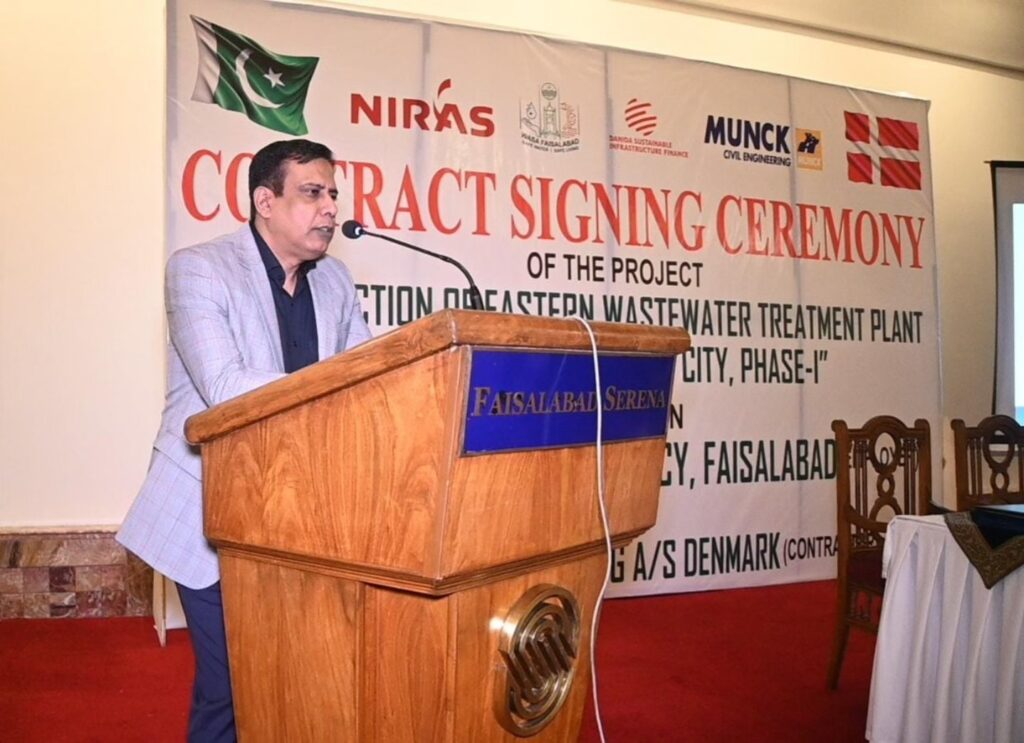
Speaking at the event, WASA Managing Director Sohail Qadir Cheema said that Faisalabad’s sewage had previously been discharged untreated into the Ravi and Chenab rivers, causing significant environmental and air pollution. However, with the completion of the 33 million gallons per day (MGD) Wastewater Treatment Plant project, citizens will gain relief from environmental hazards while the treated water will also prove beneficial for irrigation and agriculture.
He added that the Government of Pakistan and the Government of Denmark are jointly supporting this mega project, with WASA Faisalabad serving as the model implementing agency. “This is the only large-scale wastewater treatment initiative of its kind in Punjab,” he emphasized.
Expressing gratitude to the international donors, Sohail Qadir Cheema noted that the process of wastewater treatment in Faisalabad has now officially begun. He expressed hope that similar projects will be launched in the future to expand the benefits of clean water and sustainable urban management.
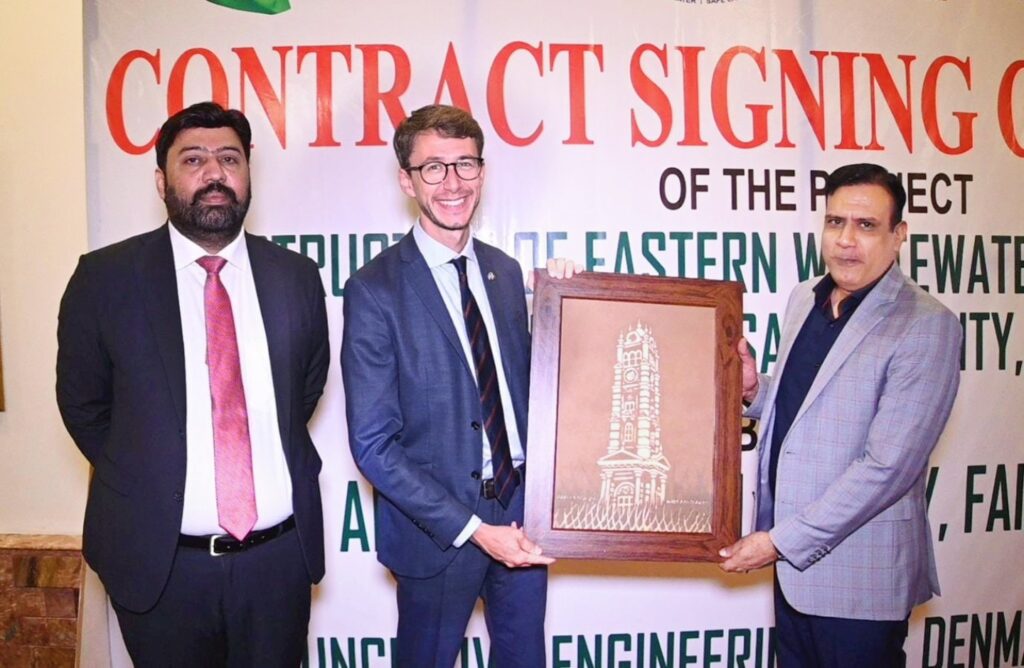
Highlighting Denmark’s support, Mr. Peter Emil Nielsen emphasized that the project reflects Denmark’s commitment to assisting Pakistan in its climate resilience and environmental sustainability efforts. “We are working closely with WASA Faisalabad to help protect the city’s residents from rising environmental pollution,” he added.
Punjab’s urban development leadership also underlined the importance of the initiative, noting that it aligns with the Chief Minister’s vision of modernizing sanitation and water supply systems across the province.
Project Director Kamran Raza termed the treatment plant “a revolutionary initiative for Faisalabad’s citizens,” adding that it is expected to be completed by 2028.
The plant is seen as a critical intervention against climate-induced water stress, urban pollution, and agricultural water scarcity. Experts believe that the reuse of treated wastewater will reduce dependence on contaminated groundwater while easing the impacts of climate change on both human health and food security.




